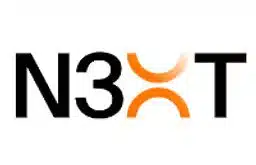Is MasterCard Inc.’s coming digital-wallet fee for online-payments providers such as PayPal Inc. a fair charge for systems that rely on the bank card networks to move their transactions, or a way for the established card networks to squeeze upstarts?
That’s the gist of the debate that’s swept across the payments industry over the past week as awareness of the fee grew. MasterCard, however, hasn’t given many details about it publicly apart from that it will be tiered and based on prior-year transaction volumes, according to press reports. MasterCard didn’t respond to a Digital Transactions News request for comment.
MasterCard, the No. 2 payment card network, clearly feels justified in imposing the fee. Speaking at an investor conference last week, Chris A. McWilton, MasterCard’s U.S. Markets president, said PayPal “rides for free on the back of other business models,” according to The Wall Street Journal’s MarketWatch site. Consumers using PayPal fund their accounts with major-brand credit and debit cards, or through automated clearing house bank withdrawals.
New Visa Inc. chief executive Charles W. Scharf quickly got into the act, telling an investor gathering that such a fee seemed “totally appropriate,” according to Reuters. But another Visa executive quickly denied that Visa, the biggest card network, had any current plans to impose a similar fee.
PayPal parent company eBay Inc. apparently first revealed MasterCard’s fee when it filed its 2012 annual report last month with the Securities and Exchange Commission. “MasterCard has recently announced a new Staged Digital-Wallet Operator Annual Network Access Fee which would apply to many of PayPal's transactions if the buyer uses a MasterCard to fund their payment, and will be collected starting in June 2013,” the filing says. “PayPal’s payment card processors have the right to pass any increases in interchange fees and assessments on to PayPal as well as increase their own fees for processing. Changes in interchange fees and assessments could increase PayPal's operating costs and reduce its profit margins.”
A PayPal spokesperson declined to give details about the coming fee or the share of cards vs. ACH funding in PayPal’s current transaction mix.
“Historically, our transaction expenses have been relatively stable over time, averaging just 1.06% over the past six quarters, despite underlying pressures from different components that comprise this metric, like the new MasterCard fee,” says a PayPal spokesperson by e-mail. He adds that “PayPal has a great relationship with the card networks and we are in fact one of their largest customers. We continue to work closely with both Visa and MasterCard as the market evolves and technology changes how consumers shop.”
PayPal is the dominant alternative online- and mobile-payment system, with $144.9 billion in global charge volume last year, and is quickly moving to the point of sale through contracts with individual large retailers and a 2012 deal with Discover Financial Services. Some observers say the bank card networks want to squash any challengers such as PayPal or smaller alternative-payments providers. Consultant Steve Mott of Stamford, Conn.-based BetterBuyDesign predicts Visa will impose a digital-wallet fee if it senses MasterCard’s is a success.
“When you’re the incumbent in the market, you don’t like innovation,” Mott tells Digital Transactions News by e-mail. “When you dominate the market, you proliferate fees anyplace you choose, and suppress competition whenever it becomes a threat. The only thing that’s a surprise is that it took this long for the duopoly to consider imposing penalties on PayPal, which, after all, is the most (and some say only) successful ‘interloper’ in the competition-challenged payments space in the past decade.”
Ralf Gladis, chief executive of Computop Inc., a Germany-based international payment services provider with a U.S. office in New York, adds that, “I’m already hearing disgruntled noises from within the industry.”
But Gladis acknowledges that digital-wallet providers have some advantages over conventional merchant acquirers. For example, multi-national “wallet schemes can apply low international and inter-regional card interchange fees for funding with card payments,” he says. “A low interchange fee helps wallets to keep their service fee to merchants down, which actually is an advantage over traditional card acquiring.”
Thus, Gladis postulates that “additional card fees for wallet schemes will probably just reduce the cost advantages of wallet schemes over card acquiring. For some this fee looks like a punishment or a fight against new innovations at the [point-of-sale]. However, it may only balance the equation with traditional acquiring banks.”
PayPal has been enormously profitable for years. In 2012’s fourth quarter, its so-called take rate, or per-transaction revenue, averaged 3.72% of the sale. After subtracting expenses of 1.03% and fraud losses of 0.28%, its margin was nearly 65%.






